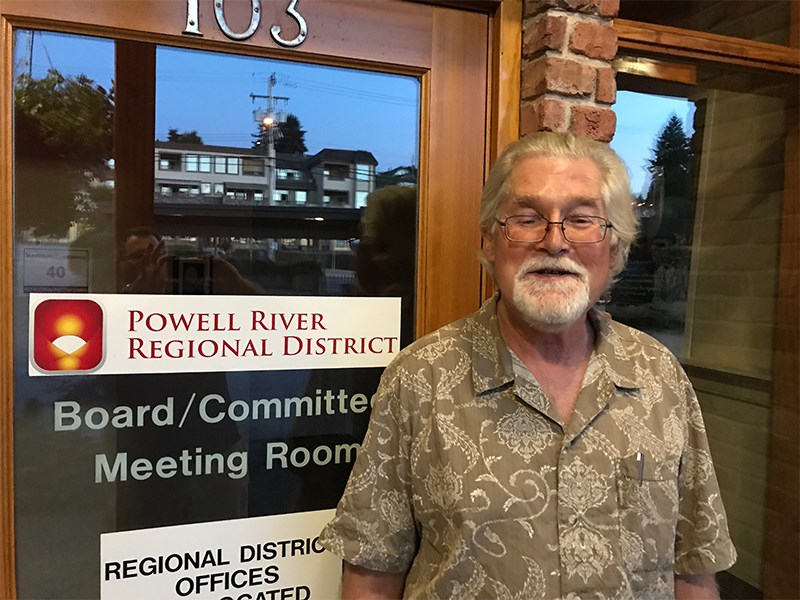Powell River Regional District board will bring in a national emergency service expert to report on the costs and risks of a locally developed fire and ambulance dispatch system for Lasqueti Island.
Lasqueti, located southwest of Texada Island, is home to about 400 people and is not connected to the province’s power grid, does not have any paved roads and is not serviced by BC Ferries.
Residents have been fighting against the regional district adopting a 911 system since 2015 and have suggested their own service.
“We were doing our own dispatching for years and the regional district did not raise the spectre of liability,” said Andrew Fall, president of the Lasqueti Community Association.
The island opposes the 911 system for a number of reasons, said Fall.
“Some people don’t like it because of the cost,” he said. “Others are worried about a loss of local control and that 911 requires house addressing.”
Regional Electoral Area E director Merrick Anderson, a retired chief of the volunteer fire department, said resident opposition is rooted in fear of change.
"They have turned turning their dispatch over to 911 into some sort of existential problem,” said Anderson. “It's the thin edge of the modern world wedge. Meanwhile, they are all online.”
The island’s emergency dispatch advisory committee (EDAC), established in 2016 and led by Fall and David Slik, submitted its 300-page final report last December. The report recommended the regional district adopt the committee’s locally developed dispatch system.
“911 is what is required, but they just threw that out and tried their hardest to reinvent the wheel,” said Anderson.
Despite its high level of detail and length of the committee’s report, the locally developed system did not include cost estimates and raised questions about liability if the dispatch system failed to protect property or lives, said district chief administrative officer Al Radke.
"We're at a crux where we need to find some kind of operable dispatching system,” said Radke, “one that's economically feasible, distances the regional district from any potential litigation and, most importantly, is sustainable.”
The dispatch system proposed in the final report would rely on a call centre not located on Lasqueti or accredited for dispatch of emergency responders.
The regional district board has sought legal opinions on what level of service it is required to provide and asked for a national emergency dispatch expert to review the EDAC’s system, said board chair Patrick Brabazon.
“If we can’t provide a proper emergency service to the community, then we're not doing our job,” said Brabazon. “We’ll either do it properly or not at all.”
Last spring the board asked expert Chris Kellet, a retired superintendent of the Edmonton police department with ties to national and provincial 911 advisory groups, to report on EDAC’s system.
Kellet's conclusion, received in June, was that even though it would open the regional district to liability risks, it could be made to work with some changes, including using an accredited emergency call centre and to improve local dispatcher training, among others.
“What I read in Kellet's report,” said Fall, “is that he doesn't like our option because it's not 911.”
According to Fall, saving a few seconds during a call does not change the nature of a volunteer emergency response or Lasqueti’s geography.
The volunteer firefighters live in homes across the island and all have to drive to the fire hall first, said Fall.
He added that Kellet would have understood that fact better if he had bothered to visit the island before doing his review.
The regional district board voted at their Thursday, July 27, meeting to have Kellet provide a second report providing a cost analysis for the amended EDAC system compared to the costs of a 911. The board also requested that Kellet visit the island.
Meanwhile, Anderson remains doubtful that Kellet’s visit will improve anything.
“This is just wasting more time," said Anderson, "and more money.”



